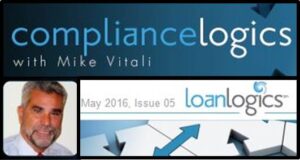 Last week, during a webinar LoanLogics presented as an ABA-endorsed provider, a question was raised about the calculation of the basis for the 10% fee tolerance under TRID. In my response, I mentioned that I had covered this topic in a recent blog.
Last week, during a webinar LoanLogics presented as an ABA-endorsed provider, a question was raised about the calculation of the basis for the 10% fee tolerance under TRID. In my response, I mentioned that I had covered this topic in a recent blog.
I stand corrected. After checking, I realized this was inaccurate. I had covered this topic in my May Newsletter on Fees.
The question raised (and I paraphrase) was: Can a fee that is disclosed on the initial Loan Estimate, but not charged at the closing, be included in the 10% tolerance calculation?
The answer is: Unfortunately, no. When the borrower uses a provider on the Lender’s Service Provider List for the services disclosed in Section C (for which they can shop).
The 10% tolerance amount is based on the fees for the services disclosed in the Loan Estimate that are also charged at closing. The fees charged at the closing may include fees that were not specifically disclosed as long as the aggregate of all the fees charged at the closing do not exceed 110% of what was disclosed on the Loan Estimate.
If a fee was disclosed on the LE but not charged on the CD, that fee must be deducted from the aggregate of fees disclosed on the LE to determine the base amount for this 10% tolerance limit. Remember, the recording fees are included in this calculation.
Keep in mind, if the borrower chooses their own provider for the settlement services the only fees that count toward the 10% are the recording fees. These then stand alone. If the final recording fees exceed the amount disclosed by more than 10%, the additional amount is a violation and must be refunded to the borrower.
Another little TRID-bit to keep in mind.
